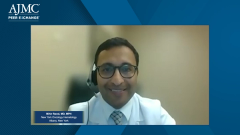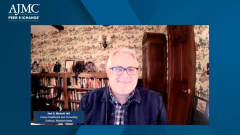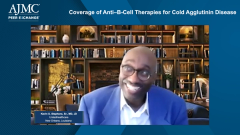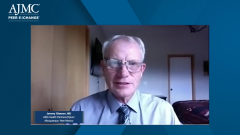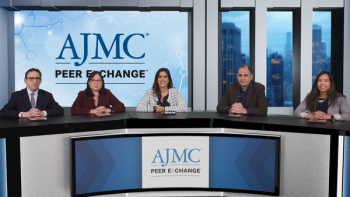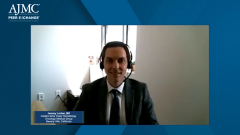
Cold Agglutinin Disease: Clinical Pearls
Take-aways from a discussion on the management of cold agglutinin disease, with expert insight on navigating the healthcare system to optimize patient care.
Episodes in this series

Neil Minkoff, MD: I'm going to take this opportunity to start winding down here because I think we've covered most of the topics we wanted to cover. We've done a deeper dive, maybe, than I think we were anticipating, into some of the topics here, so I appreciate that. Before we go further, I want to thank all of the panelists here for a very informative discussion, very rich discussion. I would like to open it up for final thoughts and some words of wisdom, both about where we are now and where we think we're going. I will ask my old friend Dr Gleeson to start off.
Jeremy Gleeson, MD: Once again, I think we need to follow the science. It's a phase that's used a lot at the moment, but I think we still absolutely need to do it. We need to have good data, we'll not expect everything we would like, like comparative trials—they won't happen. But again, I think we should guide our approach to this. It's a rare disease, clearly there's an unmet need, based on the best available data, and it looks like using the current standard treatments first, followed by this in appropriately selected patients who maybe don't respond to those older drugs will be the way to go.
Neil Minkoff, MD: Dr Lorber?
Jeremy Lorber, MD: In a rare disease such as CAD [cold agglutinin disease], we're constrained by lack of data and the data we have is typically inadequate in terms of comparing various treatment options, so we're left in a situation where we need to use our clinical judgment and be flexible and treat each patient as an individual. Having said that, I think the novel agents are promising and it's always nice to have options that work for patients. But we need to see what the burden of treatment is on the patient and see if the newer treatments are adding anything different or whether to start with what we have and what we know and move on to the novel agents later.
Neil Minkoff, MD: Thank you. Dr Stephens?
Kevin Stephens Sr, MD, JD: Thank you very much, really enjoyed this presentation. I certainly agree with your prior comments, but I wanted to take it a little broader. Number 1, we need to look at the whole patient, and one of the things that we bring to the table is that we do have case managers and disease managers who can help patients, particularly ones that are more severe, navigate through the healthcare delivery system, because if you're feeling bad and you don't have your energy and you're sluggish, it can be tough to navigate through the complicated healthcare delivery system. Number 2, we often forget about the caregivers and we forget about the mental health and behavioral health support, and that's something that we all really need to take into consideration. Look at the holistic perspective, the whole family with this, because if the mother, the father, or someone has low energy levels and they are just down and they're tired and fatigued, then that will and can have an impact on the entire family. We like to bring in our behavioral health specialist early into the process so that we can have a healthy community and healthy families. I think that's something that is many times overlooked but is so important and vital to these families.
Neil Minkoff, MD: And last but not least, Dr Raval.
Mihir Raval, MD, MPH: Thank you, Dr Stephens, for addressing an important issue. It is an exciting time in hematology-oncology because as we learn more and more about the disease process, and with the science and technology that we have now, we can actually use that knowledge into making different therapeutic interventions available for patient. It definitely makes it really good for the patients and the providers to have those options available, while they go through this rare disease. And now as we also know, there are certain mutations that causes patients to have CAD or cold agglutinin disease, maybe in future we will see a targeted treatment that actually blocks those mutations or gene variants that we know can be linked through that clonal process. We just see what the future holds for these rare diseases.
Neil Minkoff, MD: I want to once again thank all of you for your participation, everybody was so engaged and so informative, so I just want to thank all of the panelists one more time. I would like to thank everybody in our viewing audience who joined us and hope that all of you who joined us found this, our American Journal of Managed Care® Peer Exchange, to be useful and informative, so thank you for joining us. Have a pleasant day.
Transcript edited for clarity.
Newsletter
Stay ahead of policy, cost, and value—subscribe to AJMC for expert insights at the intersection of clinical care and health economics.
